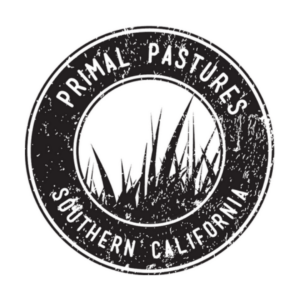Lunch meats, hamburgers, and hot dogs are common staples in American cuisine. In fact, about 89% of Americans include meat in their diet. [1] Despite its popularity, certain types of meat can have a significant negative impact on your health. So, what is the healthiest lunch meat? What should you avoid? Are “natural” meats actually healthier?
In honor of National Hot Dog Day on July 20th, let’s dive into the details! Keep reading to learn more.
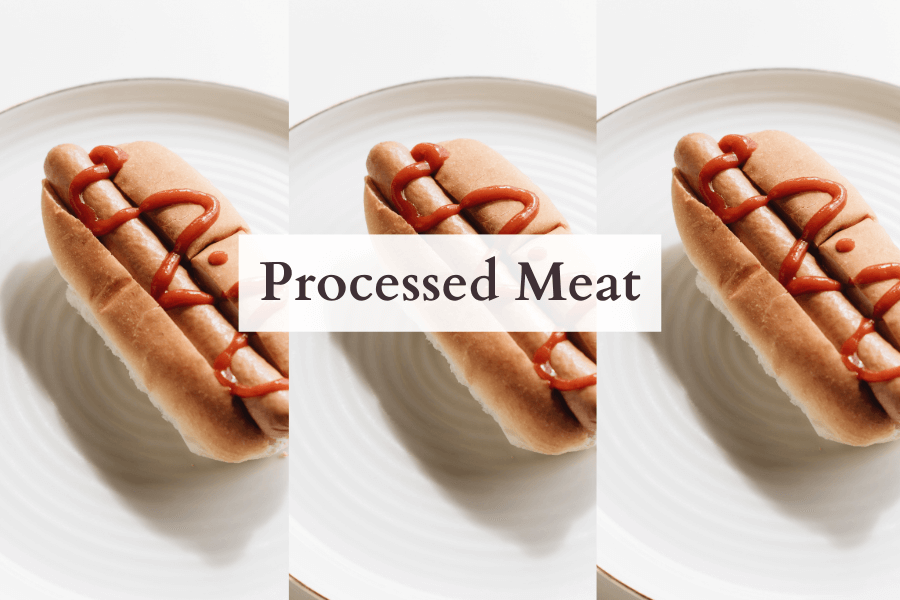
Note: This article contains affiliate links, meaning In On Around will make a small commission at no additional cost to you. This helps me maintain the site. As always, I value full transparency & only work with brands I love and trust.
What Is Processed Meat?
Meat or poultry that has been processed beyond just being ground or cut up is considered “processed meat.” This includes beef, pork, chicken, turkey, veal, lamb, etc… Oftentimes, processed meat is cured, smoked, salted, breaded, cooked, or preserved, sometimes with a concoction of chemicals.
Tyson, Cargill, ConAgra, Hormel, and most other meat brands sell a wide variety of processed meat on grocery shelves, both in refrigerated aisles and in the canned food or shelf-stable sections.
Examples Of Processed Meat
Most deli meats, lunch meats, cold cuts, and meats in casings are considered processed. This includes both red and white meat, such as:
- Coldcuts or lunch-meat: roast beef, turkey, ham, bierwurst, prosciutto, pepperoni, mortadella…
- Bacon
- Salami
- Bologna
- Hot dogs
- Sausages
- Beef jerky
- Meatloaf
- Canned meat
… and many more.
Many of these meats are convenient since they’re already prepped and ready to eat, however, they can have a significant impact on your health (which we’ll dive into in a second).
Convenience always has a cost.
Different Types of Processed Meats
The truth is… most meat undergoes some level of processing. However, the severity of processing can be very drastic.
Understand the difference between minimally processed and ultra-processed meat.
There is a difference between processed meat vs. ultra-processed or highly processed meat. Some processed meat can contain just a few added ingredients, while ultra-processed meat has a long list of preservatives, ingredients, fat, salt, and more.
Making minimally processed meats involves processing the whole animal into smaller cuts (like creating pork chop or rib-eye cuts from the carcass). For this reason, not all processing is bad! Some processing can be important to add to the shelf-life of products… but these distinctions are important.
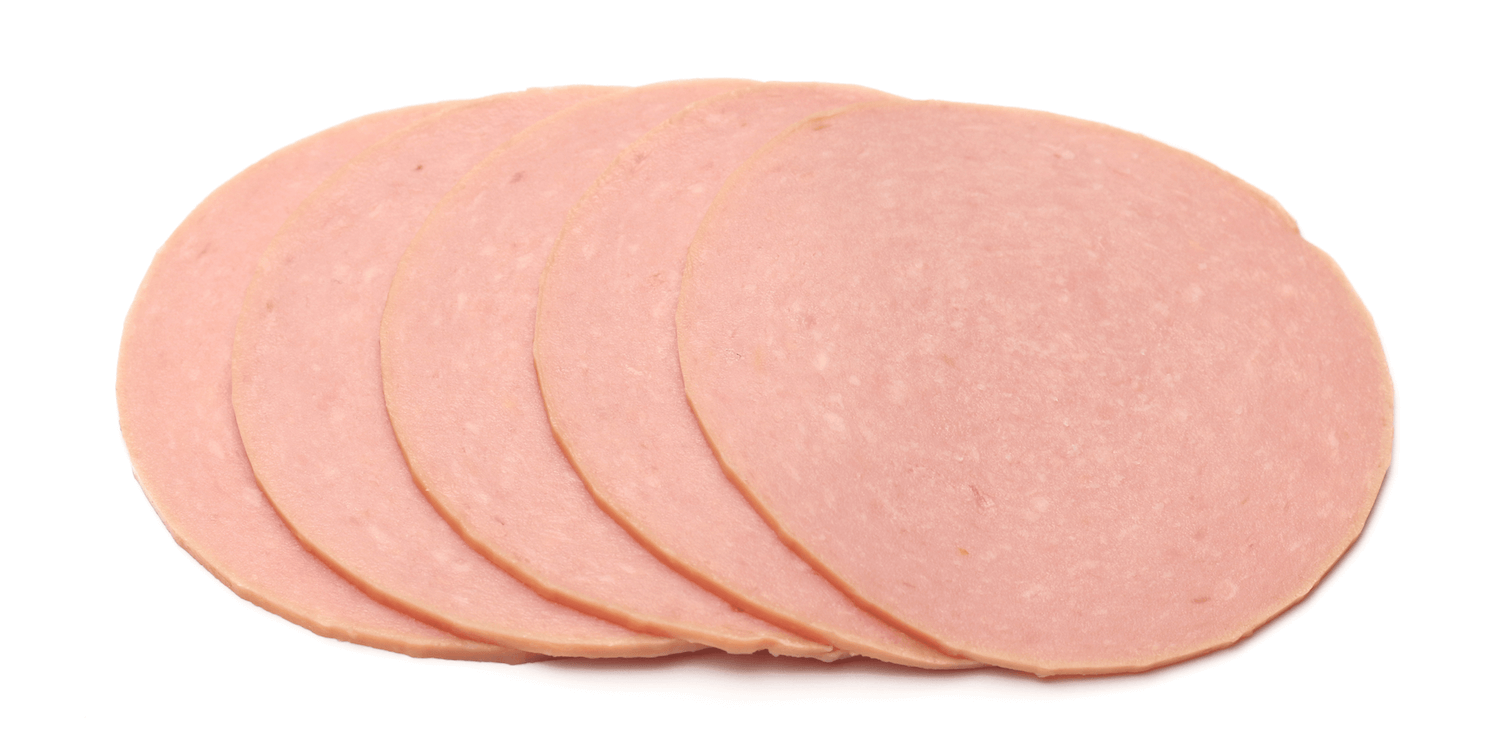
How Big Is The Meat Industry?
The meat industry is a massive industry worth over $2 trillion. [2] It’s the largest segment of United States agriculture, especially chicken. [3] The United States has one of the highest rates of per capita meat consumption around the world! Yikes.
According to Sentience Institute, 99% of animals are living on factory farms. [4] The type of meat we eat is a pandemic too. These factory farms are unsanitary, inhumane, unethical, unsustainable, and completely unacceptable. Industrialized farming oftentimes does not consider the animal’s wellbeing (which translates into the health of the meat).
Healthy animals = healthy meat = healthy humans. Quality matters. How the animal was farmed matters.
Stop supporting factory farms!
How Can Processed Meat Impact Your Health?
Processed meat is classified as a Group 1 carcinogen by the World Health Organization, meaning it is a “known and probable human carcinogen.” [5, 6] This is the same classification as other carcinogens, like tobacco, asbestos, and mold aflatoxins.
Processed meat is potentially linked to:
- Colorectal cancer (the second most deadly cancer worldwide) [7, 8]
- Prostate cancer [9]
- Pancreatic cancer [10]
- Cardiovascular disease (Heart disease) [11, 12, 13]
- Breast cancer [14]
Meat slaughterhouses and processing plants oftentimes use chlorine (bleach), which is not required to be labeled on the final product’s packaging. You can drop the risk of getting colorectal cancer by about 1/5th by just changing some simple things in your diet.
In fact, a study with over 200,000 women found that eating 20 grams of processed meat (which is about 1/2 of a hot dog) every day increased breast cancer risk by 21%. [15] Wow.
Processed meat is a known human carcinogen.
Does Cooking Meat Make It Carcinogenic?
Yes, cooking meat can increase its carcinogenicity. When processed meats are cooked, they can release nitrosamines due to the chemical reactions of nitrates, nitrites, and other proteins. Nitrosamines are carcinogenic to animals. This is why the government has placed regulations to reduce the number of nitrites/nitrates in meat. [16]
Is Celery Extract Healthier?
Sodium nitrite and sodium nitrates are added to cure meats, like hot dogs and sausages. Celery extract can also be used as an alternative to added nitrates/nitrites because it is naturally high in those compounds. These are necessary to preserve the meat, especially when it’s transported to grocery stores for long periods of time.
Celery extract, celery salt, celery powder, or celery juice are oftentimes used in “natural” lunch meats instead of other food preservatives… but there’s a catch. Celery extracts naturally contain nitrates and are biochemically identical to sodium nitrite when mixed with bacteria. [17]
For this reason, be wary of the following marketing tactics, which don’t describe the actual quality of the food:
- ‘No MSG”
- “No GMO”
- “Nitrite free”
- “No nitrates”
- “Natural”
- “No growth hormone”
Celery extract is no safer than artificial nitrites.
When used for preservation, celery extract is highly concentrated in a lab (which is different than how it is naturally found in celery or other vegetables, like spinach). Additionally, even when used in organic product, the highly-concentrated celery extract does not need to be organic. It can be used in “uncured” or “nitrate-free” meats, despite then acting biochemically the same way.
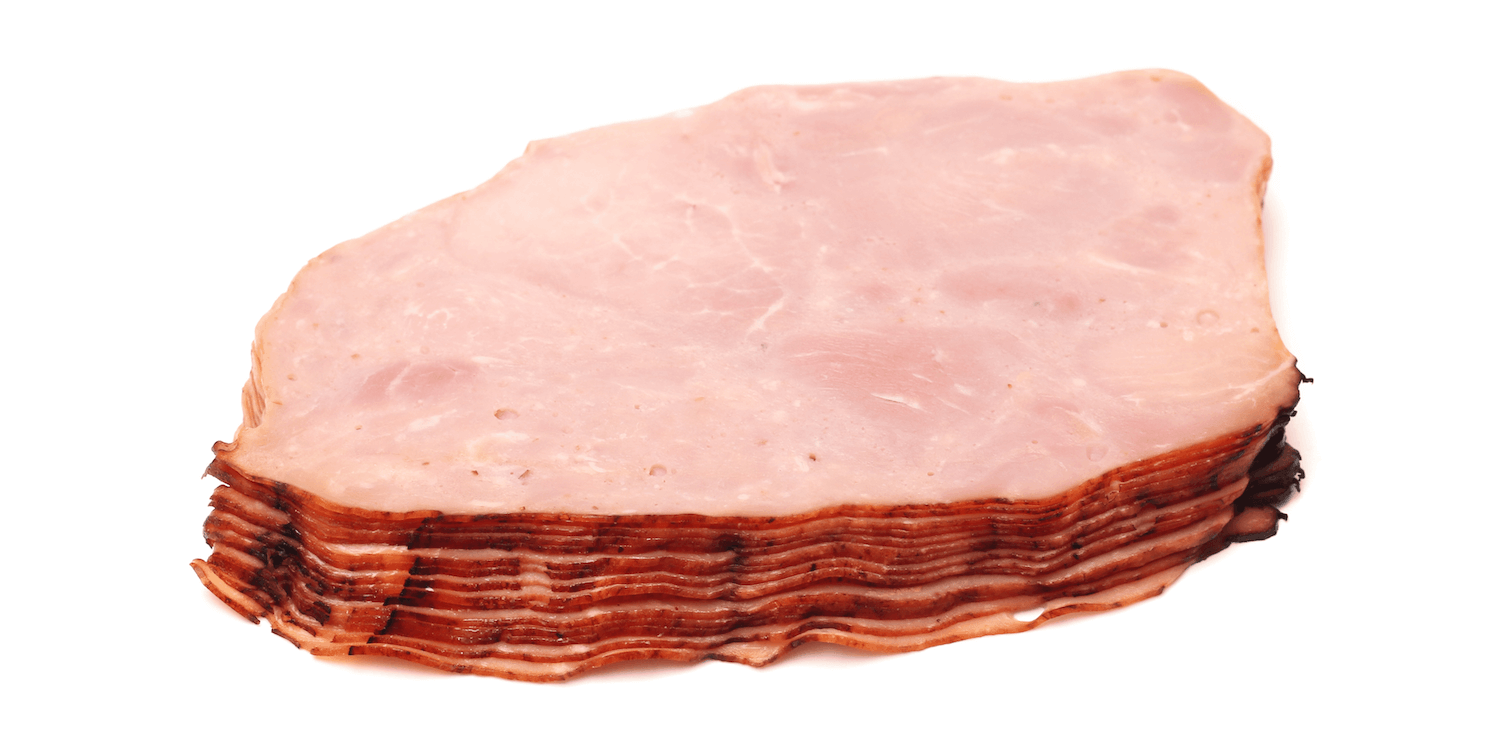
How Much Meat Is Safe To Eat?
There is a ton of conflicting health information out there. Some people claim meat is extremely unhealthy, while others claim the opposite.
Here’s the truth: we are all bio-individual. Meat can make one person feel very different than the next.
Based on current scientific findings, it is clear that meats with preservatives (like nitrates and celery powder) can increase the risk of cancer, so it’s best to avoid it.
Let’s dive into what you should specifically look for…
How To Find High-Quality Meat
If you’re a meat-eater, only eat meat if it’s…
- Organic
- Pasture-raised (regeneratively farmed & humanely raised)
- Grass-fed & grass-finished (meaning the animal was fed grass up until slaughter)
- Local (whenever possible)
- Preservative-free (as long as it’s fresh)
- Nitrite & celery extract/celery powder/celery juice/celery salt free
If you eat meat, support the farmers who are doing it right with regenerative agriculture (aka farming in the most natural way possible)! You don’t need to eat meat at every meal. In reality, most diets should consist of 80%+ plants. In fact, diets high in red & processed meats show an increased risk for cancer, cardiovascular disease, type 2 diabetes, death & more. [18]
Most people would benefit from a predominantly plant-centric diet with occasional high-quality meat.
High-Quality Meat Delivery Brands
Check out the following meat delivery brands!
- Primal Pastures (get 10% off your first order with this link)
- Force of Nature
- Cook’s Venture
- White Oak Pastures
- Butcher Box
- US Wellness Meats (although they’re not organic)
- FarmFoods (although they’re not organic)
- Wild Pastures (although they’re not certified organic)
… and, of course, there are MANY other local regenerative, pasture-focused farmers.
Should You Eat Meat?
Does this information mean that you should cut out all meat? No, definitely not.
Meat can be a great source of protein, B vitamins, zinc, and other essential vitamins. However, the quality of the meat consumed makes a big difference.
- Limit the intake of highly processed meat – you definitely don’t need it at every meal!
- Eating HIGH-QUALITY meat can be part of a well-balanced diet in moderation
- Instead of processed lunch meat, opt for freshly sliced cuts of high-quality meat or vegetables.
- Ask yourself: did our ancestors eat this way? Were they munching on hamburgers or were they hunting down whole food based dinner? Truth is, they were eating meat in moderation and foraging the rest.
- Opt for high-quality brands, like Force of Nature Meats. They don’t use celery powder, with the exception of their bisson patties (which are best to avoid).
- Note: most shelf-stable meat options (like jerky or beef sticks) contain celery powder or nitrates.
A predominantly plant-based diet is the way to go! As always, skip any fake meat alternatives, like Beyond Meat or Impossible Foods. You can read more about these unhealthy plant-based alternatives here: Pros And Cons Of Plant-Based Meat: Are They Healthy?
Focus on the quality of your food & eat a diverse diet.
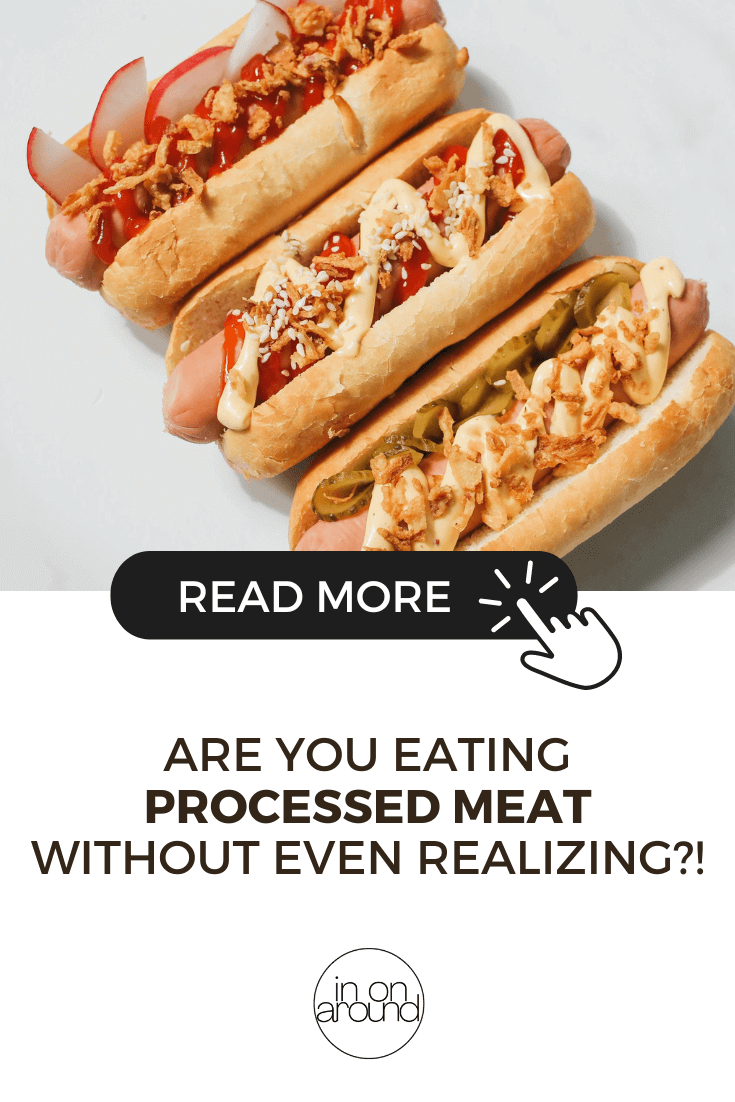
Frequently Asked Questions – Healthy Meat
Click on the below FAQs to learn more about “what is the healthiest lunch meat?”
What Is Processed Meat?
What Are Examples Of Processed Meat?
How Can Processed Meat Impact Your Health?
How Do You Find High-Quality Meat?
Do you eat processed meat?
Let me know your thoughts in the comments below!
You can watch our web story here.
xoxo,

Want to read more? Check out my other articles here!
Information on healthiest deli meat: Manitoba, Centre for Food Safety, Food Business News, The Humane League, Forbes, USDA, Reuters, PCRM, The Counter, Meat Institute, NBC, American Cancer Society
Copyright In On Around LLC 2022 ©. The statements made on this website have not been evaluated by the FDA (U.S. Food & Drug Administration). They are not intended to diagnose, treat, cure, or prevent any disease. The information provided by this website should not be used as individual medical advice and you should always consult your doctor for individual recommendations and treatment. The information contained in this site is provided on an “as is” basis. Related to this site, there are no guarantees of completeness, accuracy, usefulness, or timeliness. In On Around LLC assumes no responsibility or liability for any errors or omissions in the content of this site.

